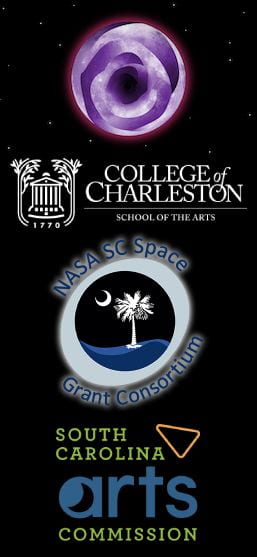I saw when, at God’s word, the formless mass,
This World’s material mould, came to a heap:
Confusion heard God’s voice, and wild Uproar
Stood ruled, stood vast Infinitude confined;
Till, at God’s second bidding, Darkness fled,
Light shown, and order from disorder sprung.
Swift to their several quarters hasted then
The cumbrous elements-Earth, Flood, Air and Fire;
And this ethereal quint’ essence of Heaven
Flew upward, spirited with various forms,
That rowled orbicular, and turned to stars
Numberless, as thou seest, and how they move:
Each had God’s place appointed, each God’s course;
The rest in circuit walls this Universe.
Look downward on that globe, whose hither side
With light from hence, though but reflected, shines:
That place is Earth, the seat of Man; that light
His day, which else, as the other hemisphere,
Night would invade; but there the neighbouring Moon
(So called that opposite fair star) her aid
Timely interposes, and, her monthly round
Still ending, still renewing, through mid-heaven,
With borrowed light her countenance triform
Hence fills and empties, to enlighten the Earth,
And in her pale dominion checks the night.
That spot to which I point is Paradise,
Adam’s abode; those lofty shades his bower.
John Milton, who lived from 1608 – 1674, was an English poet best known for his epic poem Paradise Lost, published in 1667. This poem tells the Christian myth of Adam and Eve, wrapped in the rhetoric and questions about the structure of the universe that were fueled by new knowledge gained with the application of the telescope to the practice of astronomical observations.
